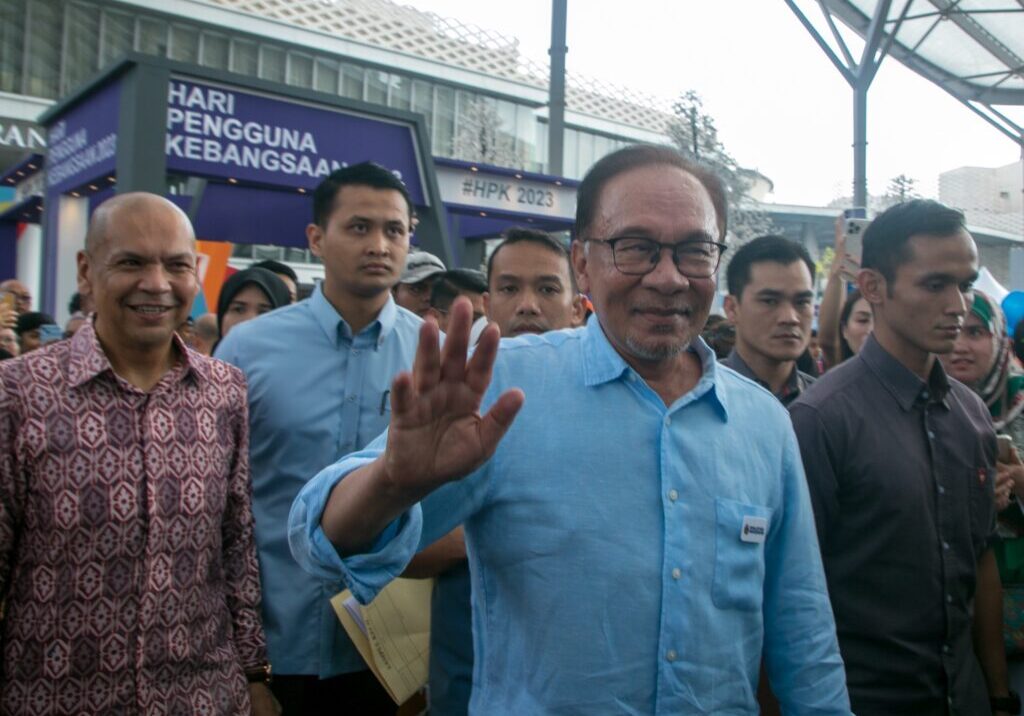Australia/Israel Review
Asia Watch: Crossing a line
Jul 1, 2016 | Michael Shannon
Michael Shannon
The Islamic month of Ramadan is meant to be a period of physical sacrifice (fasting) in order to achieve deeper religiosity, but all too often it highlights excess. Indonesia and Malaysia may be far from Islam’s Middle Eastern heartland, but are increasingly subject to its influences.
A video of an illiterate Indonesian food seller whose stall was raided during Ramadan by “public order” officials went viral last month, sparking an online campaign to help her.
Fifty-three-year-old Saeni, from Serang, west of Jakarta, was filmed by Indonesia’s Kompas TV pleading with officers from the Serang Public Order Agency as they confiscated the food she was selling. Visibly upset, Saeni begs people around her for help but is ushered out of her food stall crying. The officials say they were acting in accordance with a bylaw that stipulates food stalls cannot be open during daylight hours during Ramadan. Signs warn businesses of the law, but Saeni said she did not know because she cannot read.
The footage went viral on social media, inspiring Jakarta-based musician Dwika Putra to set up a donation drive for Saeni. Donations poured in and within three days 265,534,758 rupiah (A$26,900) had been raised.
Excessive zeal also prompted a backlash in neighbouring Malaysia. The Mufti of Kelantan state Mohamad Shukri Mohamad urged non-Muslims to dress conservatively throughout Ramadan, stating that while they have the freedom to dress however they liked, non-Muslims should be “considerate” and dress appropriately to prevent Muslims from forfeiting their fast. No link between clothing and food intake was established.
The Mufti also urged non-Muslims to refrain from “eating or drinking in front of Muslims during the fasting month.”
Separately, local daily The Star quoted Kelantan Islamic Affairs Department’s enforcement chief Mohd Fadzuli Mohd Zain as saying that 31 Muslim women were detained for either not donning a headscarf or wearing tight outfits since the start of Ramadan.
These pronouncements received wide criticism, including from within the ruling Barisan Nasional (BN) coalition. The leader of Gerakan (a Chinese constituent party of BN) Mah Siew Keong criticised the Kelantan Mufti’s edict, saying it was not his business to impart such advice on the community. “I think the Kelantan mufti has no right tell how the people should dress, the Chinese will dress what they think is appropriate,” he said.
Prominent economist and businessman Abdul Aziz Abdullah wrote Malay Mail Online, “What trial of perseverance and faith will Muslims undergo if the environment is cleansed of the ever present challenges and ‘stimulations’ for which, as I understand it, we, the Muslims, are supposed to be put to test?”
The northern, largely rural state of Kelantan is the most conservative state in regard to Islamic practice. Ruled at state level by PAS (Parti Islam se Malaysia) since 1990, it is now the focus of a push to implement a harsh, supposedly Islamic, set of penal laws known as “hudud”. These include chopping off limbs and stoning for such crimes as theft, apostasy or adultery.
By allowing a bill for its implementation to be tabled in parliament by PAS, the government is setting off alarm bells around the country among the nation’s 40% non-Muslims and dividing Muslim opinion.
Beset by massive corruption allegations, PM Najib Razak has cannily allowed the hudud issue – which he does not personally support – to linger and play havoc with the opposition coalition. Hudud was always the issue that its Chinese (DAP), urban Malay (PKR) and Islamist (PAS) components could never agree on. Last year PAS itself split over the issue, through the formation of a breakaway, modernist grouping called Amanah, while PAS left the coalition.
But the opposition coalition, now called Pakatan Harapan, has been seriously weakened. Several issues have factored, including internal rivalries and having its erstwhile leader (Anwar Ibrahim) once again jailed on spurious grounds.
So, despite the stench emanating from political and financial scandals that would doom most democratic leaders, Najib looks almost untouchable.
Before coasting to victory in by-elections in Selangor and Perak on June 18, Najib’s UMNO party settled into a familiar mode of Malaysian political campaigning. With breathtaking audacity, UMNO’s Abdul Aziz Kaprawi alleged that the Pakatan Harapan alliance was seeking to create racial tension, pitting Malays and Chinese against each other, that would somehow lead to their victory in the twin polls.
The UMNO supreme council member alleged further that Pakatan Harapan was backed by Jews and urged Malaysians to reject the Opposition to maintain peace within the country. “We know that there are many Jewish elements aiding them in many ways and we don’t want any external involvement in the management of this nation,” Abdul Aziz said, without offering any corroboration.
Such loose words did not prove damaging. UMNO’s victories in the seats were by far larger margins than in the 2013 elections.






